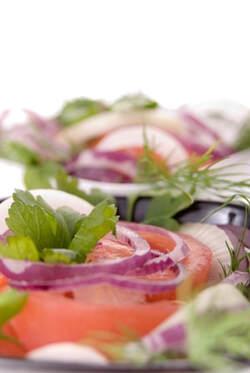|
|
|
11/5/2020 0 Comments It's Time to return to Our Greek - Cypriot mediterranean roots in the age of covid-19 Modern living in large cities have had a negative impact on our physical and mental health. Stress and modern living for most people go hand in hand and has been scientifically linked with various diseases but also with bad life decisions such as bad nutrition, smoking, excessive alcohol consumption, lack of sleep and stressful relationships. For mental health, research has proved that exercise, praying and meditation can help us better control our lives, focus, and solve our problems. They also contribute to our feeling blessed with what we have, which reduces anxiety. Gratitude is a wonderful trait to develop. A well know exercise to remind ourselves of all the things that we can be grateful of, is to have a gratitude notebook or diary. Once a day write down three things you are grateful for. It could be as simple as the running hot water you have in your house or the beautiful smile your child gave you. It’s a great exercise to remind ourselves of how many good things we can be grateful for in our daily lives. It is relevant now more than ever our greeting and toast ‘stin ygeia mas’ – to good health, as we wish our fellow human beings to be strong and healthy and full of life ! All over Cyprus and Greece, there are a great variety of cuisines, practices, and recipes, often connected with Christianity and fasting (called ‘nistia’ which I see as a great opportunity to detoxify the body) and connected with meditation, praying, good deeds, and positive thoughts about our fellow humans. But the context is always the widespread Mediterranean diet – with local variations based on the available seasonal ingredients and location. Ancient traditions also connect food with the environment. The rocky hills of Cyprus, Epirus and Crete are better for goats and sheep, where people made cheese from their milk. And in Macedonia’s rich valleys near Lake Kerkini, water buffalo have survived and give us their delicious products. The same applies to plants – we have a large variety of wild and domesticated edible plants rich in nutrients that we can add into our diets including fruits like figs, oranges, lemons and pomegranates grown in coastal regions right up into mountainous areas where apples, pears, cherries, apricots and so many other fruits are found. There is a consensus on what constitutes the Mediterranean diet, which nutritionists believe is best reflected in traditional Greek food: Meals are rich in fruits and vegetables and sprinkled with many different herbs and spices which add to the antioxidant content of the food. The key to long term health is to create healthy eating and healthy lifestyle habits and attitudes for life ! The Greek Mediterranean Diet incorporates the basics of healthy eating and living. In the Mediterranean diet pyramid, every meal is ideally based on fruits, vegetables and mostly whole grains. These form the base of the pyramid, along with olive oil, beans, nuts, legumes, seeds, herbs and spices. Next are fish and seafood, which should be eaten often – at least twice a week. Poultry, cheese, eggs and goat’s yogurt follow next; moderate portions of each are acceptable daily or weekly. At the very top of the pyramid are meats and sweets; these foods should be enjoyed less often, only on occasion. In times of Covid-19 – avoid sweets made with sugar and use raw unprocessed honey, carob or grape syrup in small amounts. Sugar has been known to depress the immune system. Mediterranean cuisine is naturally vegetarian-friendly and appeals to all ages and nationalities. The sheer variety of ingredients create dishes that are both comforting and yet have rich, complex flavours. The most important component of the Mediterranean diet might very well be social, with an emphasis on enjoying meals together with family and friends… make a point of sitting down as a family to eat or prepare meals together whenever possible and hopefully in the near future we will be eating with friends too. In people found in well know Ikaria, Okinawa and Sardinia we can see that they are connected in common nutritional principles of eating a mostly unprocessed plant based diet which is the key to longevity and to keeping your immune system working healthily and in addition they all live a lifestyle free from stress, live closer to nature and have naps ! Enjoy the videos. Ikaria nutrition and Ikaria Siesta.
0 Comments
Leave a Reply. |
AuthorBarbara is a qualified nutritionist offering Health, Nutrition & Lifestyle Counseling. She gives Healthy weight loss advice and promotes the Mediterranean diet. She is the author of the Med Life Diet - creating healthy lifestyle habits and attitudes for life ! Archives
April 2024
|
 RSS Feed
RSS Feed
